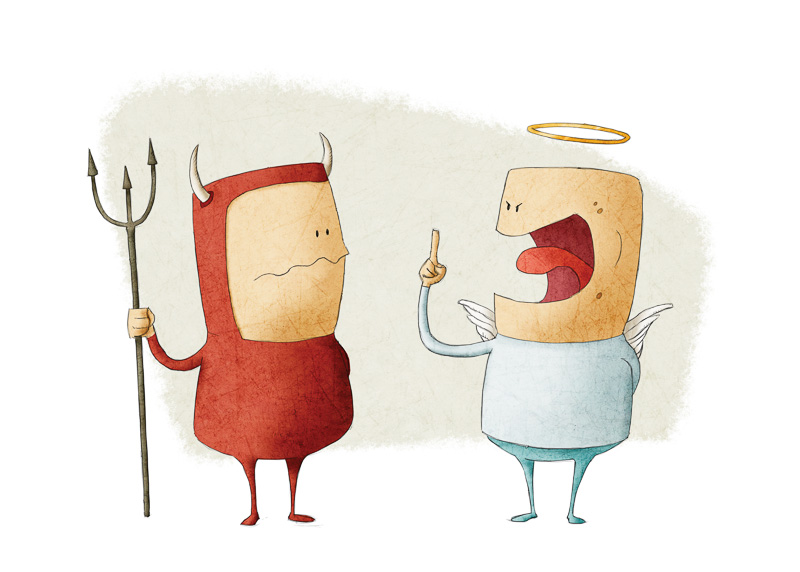How to Manage Moral Dilemmas at Work

As public officers, you are faced with moral issues regularly. Some are easily addressed by applying appropriate regulations and sound judgement, such as picking up the tab after lunch with a vendor. Others may be much harder to confront: what do you do when your boss asks you about your co-worker’s (and close friend’s) gambling habits?
When discussing professional ethics we should distinguish between three types of moral issues: moral questions, moral problems, and moral dilemmas.
Moral questions are relatively easy to answer, by acquiring and developing relevant information. Imagine your subordinate has violated the code of conduct. There are witnesses and evidence, and no shades of grey. All you need to do is look up the right procedure and set the wheels in motion.
Moral problems are slightly more complex. What is needed here is independent judgement on the right course of action, and a solution in the form of clear action. If your organisation were to update its code of conduct, how would you go about this? Who do you involve? Whatever approach you choose, you need to communicate with multiple stakeholders, with potentially conflicting positions and agendas, and perhaps you need to involve external experts. You have to decide on a course of action and justify it to others.
Moral dilemmas are issues that result in headaches and sleepless nights. There is no choice of action without potentially negative – and often painful – consequences. You cannot find a way out without hurting or disappointing one or more stakeholders and compromising principles and values you hold dear.
For instance, as a manager, you have witnessed grave ethics violations within your organisation with potentially dangerous consequences for external stakeholders. Your superiors seem unwilling to take the necessary steps to combat these violations, even after you have insisted multiple times. What do you do? You may decide to blow the whistle and involve the media or possibly even the judiciary, with years of legal battles and reputation damage (or worse) as a result. You may also decide to stay silent, remain loyal to your organisational climate, with serious psychological issues as a result, and potential dangers inflicted on stakeholders. These dangers will not go away if you simply quit your job. Do you choose exit, voice or loyalty?
In such cases, you cannot just rely on codes. What is needed is a careful thought process, in which you weigh different moral perspectives, collect the necessary facts, apply the relevant regulations, and reach a decision that takes into account the need to repair inevitable damage.
The 7-step approach to ethical decisionmaking (a framework first developed by Henk Van Lujik in 2002, which I adapted for workshop use in 2011) offers a useful structure for such a thought process.
The approach helps to clarify what’s at stake and which details are more and less important. Moreover, it requires you to make your own decision rather than outsource the decision to a superior. At the end of the day, ethics is not about prescribing politically correct solutions that are far removed from the political and organisational realities in which public officers operate.
On the contrary, ethics is all about designing the right process to address tough questions. Codes of conduct are useful but they are seldom enough. Paramount for 21st century civil servants are ethical decision-making capabilities.
7-Step Approach to Ethical Decision-Making:
- What is the core moral issue? Make a first, immediate decision and formulate the most important argument against this choice.
- Who is involved? Whose interests are at stake?
- Who is responsible for making the decision?
- What information do I need (more)?
- Which arguments can be put forward for and against my decision options? Compare arguments based on different ethics perspectives: virtues, rights and duties, and consequences.
- A) What is my conclusion?
B) How can I “repair” or reconcile with the side that was not chosen? - How do I feel about my decision? Is it just and can I justify this decision?
Dr Zeger van der Wal is Associate Professor at the Lee Kuan Yew School of Public Policy, National University of Singapore. He specialises in public management, ethics and good governance. He is currently conducting ethics seminars and workshops with the Civil Service College. Visit www.cscollege.gov.sg for more information.
- POSTED ON
Mar 7, 2014








